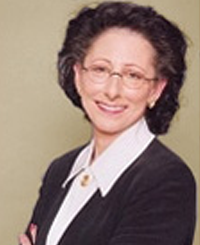What\’s My Motivation?
Whatever topic you need to discuss with your aging loved one, the objective is to bring up and discuss it in such a way that your aging loved one will willingly do what\’s in their best interest. Unfortunately, however, the reality is that no one can make anyone want to do anything. All anyone can do is help someone see why doing something is in their best interest and therefore, why they would want to. This is true when working with anyone – the elderly, spouses and kids.
For example:
You want your son to pick up his clothes but he never does. You\’ve tried every reason you can think of. Because they\’ll get ruined from being on the floor? No . . . mom will buy him more – right? Because he won\’t have clothes when he needs them? Nah . . . he\’ll borrow dad\’s. The problem is that these reasons are important to you. The only thing that will work is figuring out why picking up his clothes might be important to your son. How about because the girls won\’t be interested in a boy who looks sloppy? Yup – that\’s the one! (You might even catch him ironing!!)
The key to your success is to find the right “hook” to tap into their true motivations. Ideally you know the person well enough to know what is important to them as a unique individual. (If not, you can start by knowing what might motivate generationally.) Once you do, you can ask the questions that will help them motivate themselves. For some people this means helping them get what they want. For others, it\’s showing them how to avoid getting what they don\’t want.
Here are some examples:
Your Dad shouldn\’t be driving any more:
What is important to him? Yes, for him his car probably represents freedom and independence. But what is equally – if not more – important to someone of our parent\’s generation? Saving money and their reputation.
Therefore, rather than trying to convince him that his freedom and independence aren\’t attached to his car (which you\’re not going to be able to do), instead ask him questions that will get him to focus on how an accident could cost him money and his reputation (as in – what “the neighbors will say if he has an accident”).
BTW – before taking away the car, it\’s important that Dad has an alternate way of getting around. Again, come up with the solutions by asking him questions such as: “how would you get around if you had an accident and the car was in the shop for a month?”
Mom can\’t live safely alone but won\’t allow anyone to come and help:
What\’s important to her? For a woman of our mother\’s generation, her home is her identity and her reputation and therefore, what\’s important to her. So . . . rather than trying to convince her how wonderful it will be to be waited on hand and foot at the assisted living community (which you won\’t be able to do), ask her questions that will focus on her home as her identity and reputation. For example: “I want to help you stay at home and I want you to be able to be proud of it. What does the house being so dirty (falling apart, etc) say about your housekeeping to the ladies in the neighborhood?”
Mom needs advance planning documents but she won\’t even discuss them:
You know Mom needs a Power of Attorney to make sure her bills are paid if she\’s temporarily unable to pay them herself as well as Living Will and Health Care Proxy so someone can make health care decisions. Again . . . what\’s important to people of her generation? Her pride, reputation, and her home. So in this case, the questions you ask might be about what she doesn\’t want to happen such as “What will happen if something happens to you and no one can pay the bills? Do you want to risk losing your home” or “What will happen if, God forbid, you\’re in a coma and no one can speak on your behalf? Do you want to end up in a nursing home because no one can make decisions about your care?”
PLEASE NOTE: These are good examples but people are motivated differently and there will always be nuances. You have to know what motivates your aging loved one in order to ask the right questions. That\’s why it\’s important to hone in on your own unique parent so you know the right “hook” to tap into. To get that information, check out the AgeWiseLiving LifeTalks™ program.
© Copyright AgeWiseLiving™ 2010 You can find information about how to talk with your aging loved ones in “The Ultimate Caregiver\’s Success System” by going to www.AgeWiseLiving.com. While there, sign up for Barbara\’s free monthly newsletter. You can also contact Barbara by calling toll-free (877) AGE-WISE. Barbara E. Friesner is the country\’s leading Generational Coach and expert on issues affecting seniors and their families. She is an adjunct professor at Cornell University.



Leave a Reply
You must be logged in to post a comment.